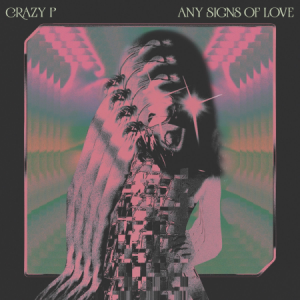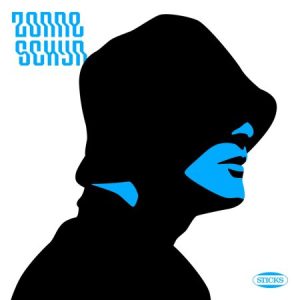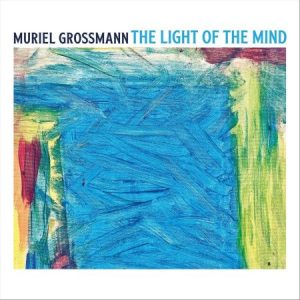Album review overview: The Rolling Stones, MC Solaar, and more
Dozens of new albums arrive at Maxazine’s editorial staff every week. There are way too many to listen to them all, let alone review them. It ensures that too many albums are left behind. And that’s a shame. That is why today we post an overview of albums that arrive at the editors in short reviews.
The Rolling Stones – Welcome to Shepherd’s Bush
The Rolling Stones’ new release, “Welcome to Shepherd’s Bush,” feels like a peculiar paradox—a 1999 intimate club performance now repackaged as a commercial product for nostalgic masses. It’s like a carnival attraction polished over and over, shiny but with some rust peeking through. Yet something is captivating about this late-’90s time capsule. The band, already three decades into their rock ‘n’ roll journey, shows glimpses of the raw energy that once earned them the title of “the world’s most dangerous rock band” in the intimate setting of the Shepherd’s Bush Empire. Their performance of “Melody,” played for the first time since 1977, sounds surprisingly vibrant—like a forgotten gem rediscovered. Sheryl Crow’s presence during “Honky Tonk Women” is typical of the era—a commercial nod that somewhat undermines the authenticity. This exemplifies how the Stones have managed their myth: as a business safeguarding its brand value. Musically, everything is in fine order—the band is tight and professional, exactly as expected. Yet there’s an awkwardness to this umpteenth reissue of archived material. It’s like a circus repeating the same acts, knowing the audience will show up regardless. For completists, this is undoubtedly a must-have. For others, it serves as a reminder of how the once-rebellious blues innovators have become curators of their legacy—expertly crafted, but with the spontaneity of a staged celebration. (Jan Vranken) (6/10) (Promotone BV)
Crazy P – Any Signs of Love
A new album is often a delightful prospect for fans. However, fans of Crazy P, formerly known as Crazy Penis, might approach this release with mixed feelings. Lead singer and frontwoman Danielle Moore passed away recently. The album was already completed, and the band decided to release it as a tribute to her. Crazy P blends soul, funk, house, and downtempo styles. “Any Signs of Love” is their ninth album. It grooves effortlessly, and despite its length, it remains an enjoyable listen. Tracks like “Not Too Late” and “Love Is Power” feature driving basslines that make it impossible not to nod along. The album’s opener and closer transport listeners back to the ’80s. While it’s not something I would typically gravitate towards, this album pleasantly surprised me. A fine release as the year comes to a close. (Rik Moors) (8/10) (Walk Don’t Walk Limited)
Sticks – Zonneschijn
Listening to an album by Sticks requires full attention. Nothing from this Zwolle rapper is incidental; his lyrics are always poignant and impactful—if you grasp their intended meaning. You must learn to understand, analyze, and reflect on where the words come from, chew on them, and ultimately hear what Sticks is trying to convey. “Zonneschijn” is his most personal album, encompassing everything about life, death, and the journey. Reflecting on the core values of existence, one must never forget their origins, as these shape you. For this reason, Sticks returns to his roots on this album, both in his lyrics and collaborations. It could almost be a new album by Fakkelbrigade, thanks to contributions from old companions Typhoon, Freez, James, and Rico. Undoubtedly one of the best Dutch hip-hop albums of the year.(Jeroen Mulder) (8/10) (Top Notch)
MC Solaar – Balade Astrale
“Balade Astrale,” the latest masterpiece by MC Solaar, serves as a mesmerizing conclusion to his recent trilogy. Like a cosmic voyage through the hip-hop universe, this album cements his undisputed position at the genre’s forefront. “Maitre de Ceremonie” opens like a musical revelation, with Solaar’s signature flow unfolding like an elegant dance. His words float over the beat with precision honed over decades—a verbal choreography that feels effortless and hypnotic. The collaboration with Benjamin Epps on “Benedictions” is a transcendent highlight. Here, jazz and hip-hop merge in an alchemical process reminiscent of Solaar’s early Jazzmatazz days, but now elevated to new heights. The orchestration is breathtaking—a symphonic tapestry of brass and strings intertwining with beats like a mystical haze. “James Brown” is an energetic tribute, featuring a sleek guitar line and resonant bass that create a groove reaching straight to the soul. Solaar demonstrates why he is regarded as a hip-hop master—his delivery is both a lesson in technique and a celebration of pure musicality. What makes “Balade Astrale” special is the timeless quality running through every track. It is the work of an artist who has nothing left to prove but continues to innovate, bridging the golden era of hip-hop with its future. This is no nostalgic reflection but a visionary statement from a master still at the peak of his craft. With this album, Solaar proves his artistic journey is far from over—in fact, he seems to delve deeper with each release into the essence of what hip-hop can be. “Balade Astrale” is not just a fitting conclusion to his trilogy; it is a manifesto of an artist perfecting his craft. (Jan Vranken) (9/10) (Osmose Universe)
Muriel Grossmann – The Light of the Mind
Austrian saxophonist and composer Muriel Grossmann is one of the torchbearers continuing the legacy of John Coltrane in modern jazz. Her signature “blues groove” features a driving rhythm section as the foundation for her lyrical playing style, a style that has earned her international acclaim since her 2008 debut. Despite this, Grossmann remains relatively unknown in the Netherlands, which is unjustified. Grossmann represents an accessible form of swing jazz, blending complex compositions and experimentation while guiding listeners seamlessly with the rich tones of her tenor and soprano saxophones. On “The Light of the Mind,” Grossmann also gives ample space to other instruments, including the hollow-body guitar of co-producer Radomir Milojkovic and the Hammond organ of Abel Boquera, who take turns improvising freely. Yet the unbroken groove ensures that listening to this album is nearly impossible without moving, even if it’s just a cool head nod. (Jeroen Mulder) (8/10) (Self-released)










